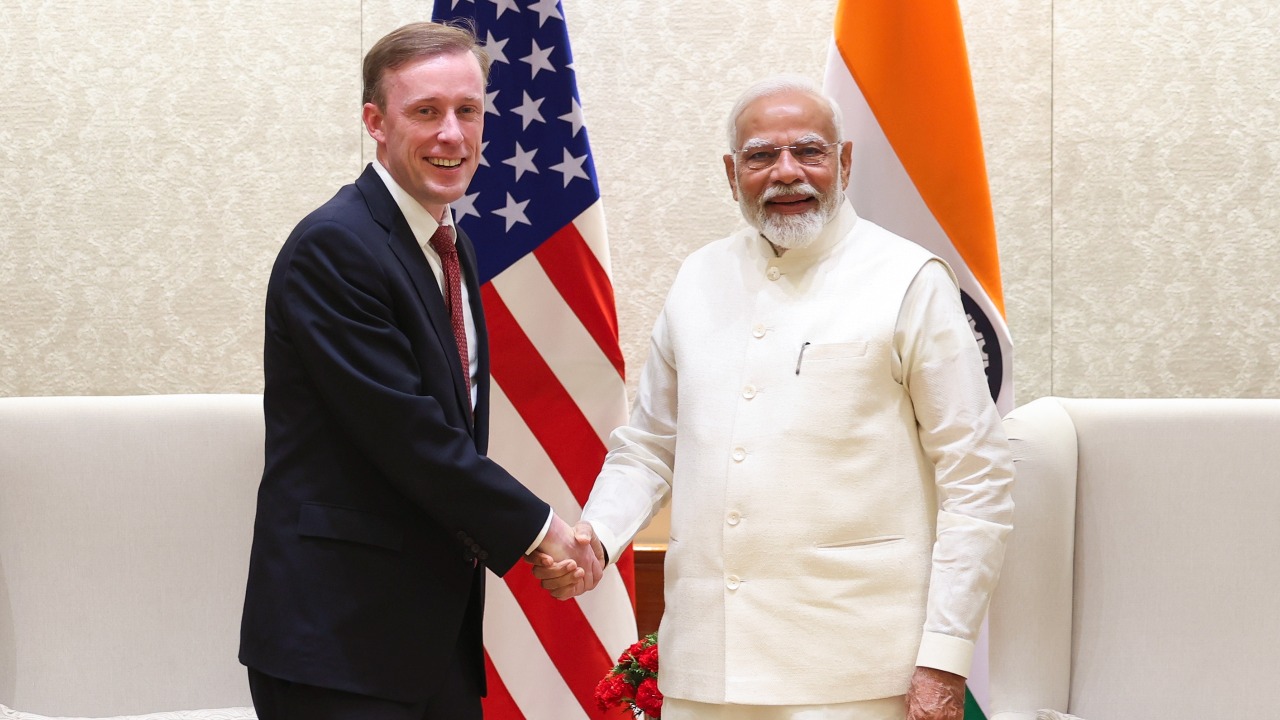Mamata Banerjee to Honor 95 Fishermen Released from Bangladesh

On January 5, 2025, West Bengal Chief Minister Mamata Banerjee is scheduled to visit Sagar Island, a significant location in the state, renowned for its historical and religious importance. This visit has a twofold purpose. First, she will oversee the elaborate preparations for the upcoming Gangasagar Mela, a grand religious fair that draws millions of pilgrims annually to the sacred confluence of the Ganga River and the Bay of Bengal. Second, she will participate in a heartwarming ceremony to honor 95 fishermen who were recently released from a prison in Bangladesh. These fishermen, predominantly from the Kakdwip and Namkhana regions of West Bengal, were detained in Bangladeshi waters between October and November of 2024. The incident arose due to allegations of crossing international maritime boundaries, an issue that has long plagued fishing communities in the region.
The Gangasagar Mela, often referred to as the "Kumbh of the East," holds immense significance in the spiritual and cultural fabric of India. Each year, it sees a convergence of devotees who brave the cold January weather to take a holy dip at the Sangam (confluence). This sacred act is believed to wash away sins and lead to spiritual liberation. For the state government, organizing the Gangasagar Mela is both an opportunity to showcase West Bengal’s cultural richness and a logistical challenge. Hence, the Chief Minister’s personal involvement underscores the importance of this event and the commitment of her administration to ensure its success.
The fishermen's felicitation ceremony adds a unique dimension to her visit. These fishermen, who are integral to the coastal economy of West Bengal, found themselves in a precarious situation when their boats inadvertently crossed into Bangladeshi territorial waters. Cross-border fishing disputes are not uncommon, especially in regions where maritime boundaries are not clearly demarcated or are prone to natural shifts due to tidal and seasonal changes. These incidents highlight the vulnerabilities of fishing communities who often venture into open seas, driven by economic necessity and the search for a better catch.
The arrest and subsequent imprisonment of these fishermen in Bangladesh were a source of distress for their families and communities back home. The prolonged uncertainty about their release caused immense emotional and financial strain. However, diplomatic efforts and negotiations facilitated by the Indian and Bangladeshi governments eventually led to their freedom. Their return on January 4, 2025, was marked by an overwhelming sense of relief and joy, not only for their families but also for the broader fishing community.
The district administration of South 24 Parganas, where Sagar Island is located, has gone to great lengths to prepare for the felicitation ceremony. A stage has been set up near the helipad, where the fishermen were welcomed upon their arrival. The event is expected to be both a solemn and celebratory occasion, reflecting the government’s commitment to standing by its citizens in times of crisis. During the ceremony, Chief Minister Mamata Banerjee is anticipated to acknowledge the hardships faced by these fishermen during their time in detention. It is also expected that she will announce compensation and other forms of support as a gesture of solidarity and recognition of their ordeal.
This gesture is significant for multiple reasons. Firstly, it sends a strong message of the government’s dedication to the welfare of its citizens, particularly those who are economically disadvantaged and marginalized. By honoring the fishermen, the government is not only addressing their immediate concerns but also demonstrating a commitment to resolving broader issues related to cross-border fishing rights. Secondly, the event highlights the need for better coordination between India and Bangladesh in addressing the recurring challenges faced by fishing communities in the Sundarbans region and the Bay of Bengal.
Fishing is one of the primary livelihoods for the coastal communities of West Bengal. Regions like Kakdwip and Namkhana are hubs of fishing activity, with hundreds of boats venturing into the sea daily. However, the profession is fraught with risks, ranging from natural calamities to geopolitical disputes. Incidents of fishermen being detained for inadvertently crossing international maritime boundaries are not uncommon in this region. Such incidents often stem from a lack of clarity in maritime demarcations and the absence of advanced navigation equipment on traditional fishing boats.
The plight of these fishermen draws attention to the larger issue of cross-border maritime disputes. Both India and Bangladesh share a long and intricate maritime boundary, and disputes over fishing rights have been a longstanding concern. While agreements and treaties have been signed to address these issues, their implementation often falls short at the grassroots level. The detention of fishermen, though a recurring issue, serves as a reminder of the need for a more comprehensive and collaborative approach to managing shared maritime resources.
Mamata Banerjee’s decision to personally honor the fishermen underscores her political acumen and her understanding of the emotional and symbolic significance of the event. As a leader, she has often emphasized the importance of connecting with the grassroots and addressing the concerns of marginalized communities. By highlighting the fishermen’s plight and their eventual release, she is not only acknowledging their struggles but also reinforcing her government’s image as a protector of the people.
The felicitation ceremony is also likely to resonate with the larger public, especially in the coastal and rural areas of West Bengal, where fishing is a predominant occupation. It serves as a reminder of the government’s efforts to ensure the safety and well-being of its citizens, even in challenging international scenarios. Furthermore, the event underscores the importance of diplomacy and cross-border cooperation in resolving such issues amicably.
The Chief Minister’s visit to Sagar Island, therefore, carries immense significance, both symbolically and practically. It showcases the government’s proactive approach to addressing local concerns while also managing larger logistical challenges associated with organizing a massive event like the Gangasagar Mela. The dual focus of her visit – overseeing the preparations for the mela and honoring the fishermen – reflects a balanced approach to governance, combining cultural preservation with socio-economic support.
As the fishermen step onto the stage to receive their honors, it will be a moment of profound emotional resonance. Their stories of resilience, courage, and survival will serve as a testament to the indomitable spirit of the human will. For their families, the ceremony will mark the end of a painful chapter and the beginning of a new one filled with hope and support. For the broader community, it will be a reminder of the importance of unity and the power of collective action in overcoming challenges.
The Gangasagar Mela preparations, meanwhile, will continue to be a focal point of the Chief Minister’s visit. Ensuring the safety and well-being of millions of pilgrims is a monumental task that requires meticulous planning and execution. From setting up temporary shelters and sanitation facilities to managing transportation and crowd control, every aspect of the mela demands coordinated efforts from multiple government departments. Mamata Banerjee’s on-ground assessment is expected to provide a morale boost to the officials and volunteers involved in this massive undertaking.
Mamata Banerjee’s visit to Sagar Island on January 5, 2025, is a reflection of her government’s commitment to holistic governance. By honoring the fishermen and addressing their struggles, she is sending a powerful message of solidarity and support. At the same time, her focus on the Gangasagar Mela underscores her dedication to preserving and promoting West Bengal’s cultural heritage. This visit, therefore, is not just a routine political engagement but a meaningful and impactful gesture that bridges the gap between the government and the people it serves.
Posted By: Shraddha
.gif)
.gif)





%20(600%20%C3%97%20386px)%20(600%20%C3%97%20329px)%20(500%20%C3%97%20281px)%20(450%20%C3%97%20281px)%20(450%20%C3%97%20253px)%20(386%20%C3%97%20238px).jpeg)
%20(600%20%C3%97%20386px)%20(600%20%C3%97%20329px)%20(500%20%C3%97%20281px)%20(450%20%C3%97%20281px)%20(450%20%C3%97%20253px)%20(450%20%C3%97%20250px).jpeg)
.jpg)
.jpeg)